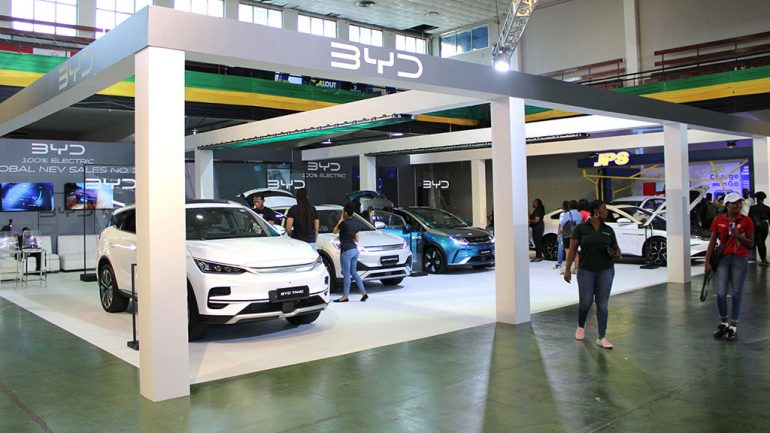In the current landscape of the American automotive market, a noteworthy trend is emerging as consumers display a growing inclination towards gas-electric hybrids, even as electric vehicle (EV) sales witness Full Article »


In the current landscape of the American automotive market, a noteworthy trend is emerging as consumers display a growing inclination towards gas-electric hybrids, even as electric vehicle (EV) sales witness a slower-than-expected surge. While the automotive industry had placed substantial bets on the rapid dominance of EVs, the pace of their adoption is falling short of ambitious projections. Instead, a surge in the popularity of a technology nearly a quarter-century old—the gas-electric hybrid—has taken center stage, allowing vehicles to seamlessly alternate between gas and battery power for enhanced efficiency.
As per Edmunds.com, Americans have set a record by purchasing over 1 million hybrids in 2023, marking a substantial 76% increase from the same period in the previous year. The surge in hybrid sales is a stark contrast to the declining pace observed in EV growth rates, which are now approaching an annual record of over 1 million but constitute only about 7% of total U.S. auto sales.
The growing preference for hybrids over EVs can be attributed to several factors. Firstly, the higher prices of comparable EVs, combined with concerns about the scarcity of charging stations, have steered consumers toward hybrids. Hybrid vehicles offer many of the advantages associated with EVs without the perceived hassles, making them an attractive alternative. Notably, Ford, the second-largest hybrid seller after Toyota, is planning to quadruple hybrid sales within five years, while General Motors is reconsidering its focus on hybrids after largely abandoning them in favor of EVs four years ago.
One of the significant drivers behind the surge in hybrid sales is the increasing global concern about climate change. The rise in wildfires, heatwaves, and intense storms has prompted more individuals to seek ways to reduce carbon emissions. Some consumers remain skeptical about the capability of EVs to travel long distances or tow trailers, making hybrids an appealing compromise that aligns with environmental consciousness.
Another compelling factor is the pricing dynamics. While EV prices have been decreasing, federal tax credits and price cuts by market leader Tesla, EVs still tend to be pricier than hybrids or traditional gasoline vehicles. The average price of a hybrid has stabilized around $42,000, making it a more budget-friendly option for many consumers.
Lifestyle needs and practical considerations also play a role in the growing popularity of hybrids. Concerns about the availability of charging infrastructure and anxiety about decreased range in cold weather contribute to the appeal of hybrids, especially in regions where these factors are more pronounced. Additionally, reliability has emerged as a key factor, with Consumer Reports ranking hybrids as the most reliable power system, while EVs are perceived as less reliable due to the inclusion of relatively new and glitch-prone technology.
Despite the current surge in hybrid sales, industry analysts still anticipate that EVs will eventually surpass hybrids in sales volume. With ongoing efforts to expand charging infrastructure, standardize plugs, and improve battery technology, the EV landscape is expected to evolve. Moreover, as government incentives, charging times, and tax credits continue to improve, the automotive industry is likely to witness a shift toward increased adoption of electric vehicles over time.
Source: Associated Press













